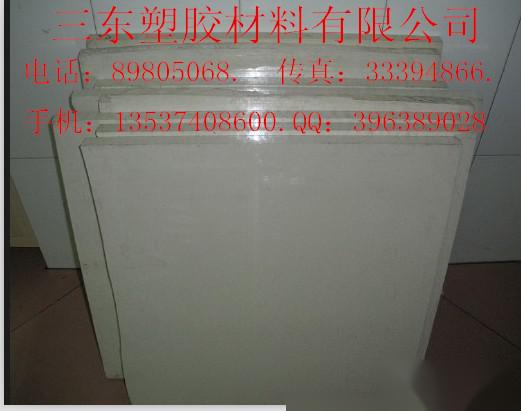Polyphenylene Sulfide (PPS)
Abbreviation PPS 
Main performance of PPS
◆ [Excellent heat resistance] Its melting point exceeds 280℃, heat distortion temperature exceeds 260℃, long-term use temperature is 220-240℃. In air, it degrades at 700℃ and retains 40% of its weight in inert gas at 1000℃. The short-term heat resistance and long-term continuous use thermal stability are better than all current engineering plastics. With special modification, the heat distortion temperature can exceed 350℃.
◆ [Inherent flame retardancy] PPS flame retardancy can reach UL94-0 grade, oxygen index (LOI) >57%. The chemical structure of PPS itself gives it good flame retardant performance without the need for flame retardants.
◆ [Good mechanical properties] It is extremely rigid, has high surface hardness, Rockwell hardness >100HR, tensile strength >170MPa, flexural strength >220MPa, notched impact strength >16MPa, flexural modulus >3.5×104, and has excellent creep resistance and fatigue resistance.
◆ [Excellent chemical resistance] No solvent has been found that can dissolve PPS below 200℃, and it has strong resistance to inorganic acids, alkalis, and salts.
◆ [Good dimensional stability] Low molding shrinkage, less than 0.0025%, absorption rate less than 0.05%, and small linear thermal expansion coefficient. It exhibits good dimensional stability under high temperature and high humidity conditions. Therefore, it has a wide range of applications in various fields such as machinery, chemical industry, instruments, meters, aerospace, ships, etc.
◆ [Good electrical properties] PPS still has excellent electrical properties under high temperature, high humidity, and high frequency conditions, with a volume resistivity of 1×1016Ω.cm, surface resistivity of 1×1015Ω, and electrical strength >18KV/mm.
◆ [Radiation resistance] Radiation resistance reaches Gy1×108, making it a new material that other engineering plastics cannot compare with, making it an ideal material for electronics, electrical, mechanical, instruments, aerospace, military, and other fields, especially radiation resistance.
◆ [Good processing performance] PPS resin has low melt viscosity, good fluidity, and is extremely easy to wet and contact with glass fibers, making it easy to fill with fillers. Glass fiber or inorganic filler-reinforced injection molding grade pellets prepared from it have extremely high tensile and compressive resistance, impact resistance, bending resistance, and ductility. It can be uniformly formed above its melting point.
◆ [Good adhesion to metals and non-metals] PPS has very high bond strength to glass, aluminum, titanium, stainless steel, etc., with adhesion reaching grade 1. It has good bonding performance with glass and is particularly suitable as a lining material for chemical equipment.
Main application range of PPS
Electronics and Electrical: Miniature electronic component encapsulation, connectors, terminals, sockets, coil frames, trimming capacitors, fuse base.
Machinery and Instruments: Pump housing, pump impeller, tile, gear, pulley, universal joint, sealing gasket, flange plate, counter, level gauge, flow meter components.
Automotive field: Temperature sensors, carburetors, evolvers, evaporator pumps, seat bases, radiator water chambers.
Household appliances: Electric fans, microwave oven brackets, dryers, coffee pots, rice cookers, hot air blowers, hair straighteners, air conditioner compressors.
Military field: Making fighter jets, vertical tail, combustion chamber, aerospace, aviation, aircraft connectors, coil frames, many components of instrument panels, especially key components of stealth fighters, bombers. Parts of nuclear radiation-resistant components of nuclear submarines, supports, helmets, military tents, utensils for astronauts, corrosion-resistant and wear-resistant parts of warships and submarines, new types of tanks developed by the United States (in the production stage) and plastic tanks developed by the United Kingdom (in the experimental stage), etc...
Fibers and Films: PPS fibers blended with other synthetic fibers can be used to make high-performance industrial filter cloths and radiation-resistant aerospace fabrics. PPS films are good insulation materials reaching class F, and can be used to make capacitors, impedance electronic components, flat coil frames, wire coatings, covers, evaporator diaphragms, heat-sensitive printing materials, flexible disks, photosensitive tapes for electronic photography, etc.













